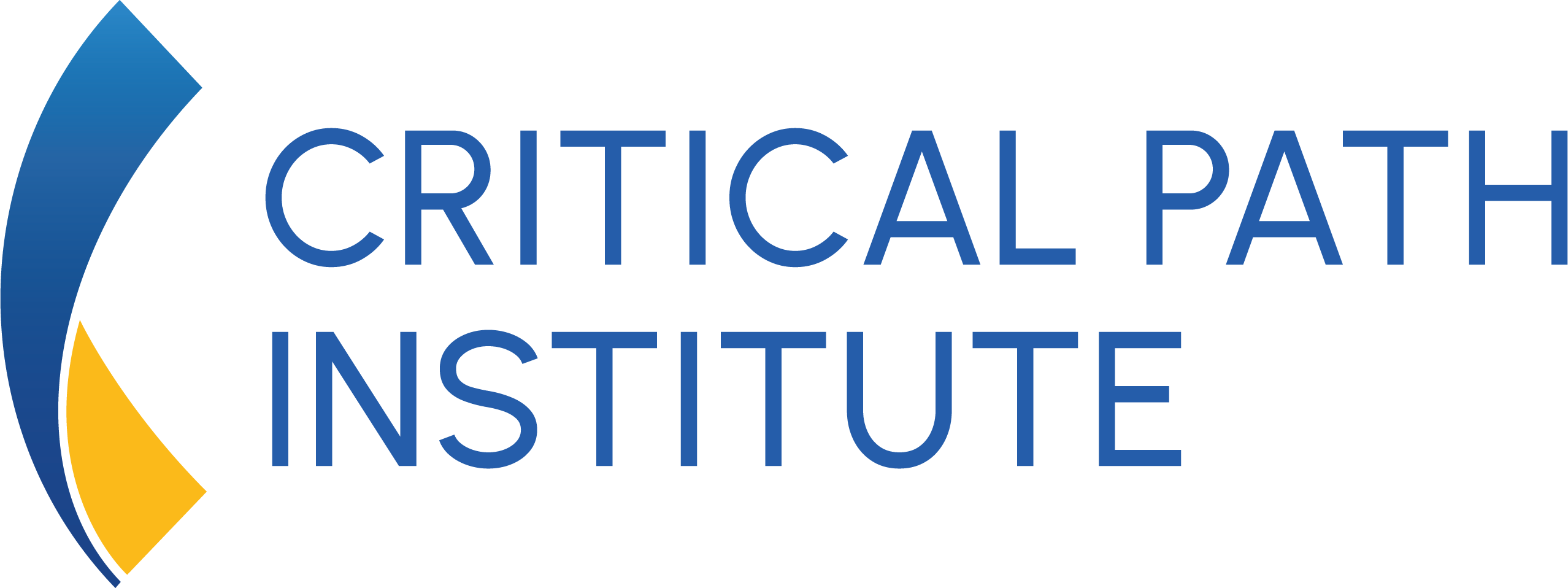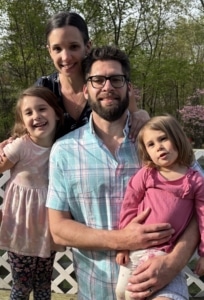
Seeing as how this is a C-Path piece, I suppose it may be prudent to introduce myself to those in our community I have yet to meet: I’m Alexander Diegel, C-Path Communications Guy. Or Assistant Director of Communications, if you’re into “official” titles. You have hopefully read a story or press release of ours, but you may best know me as the wide-shouldered photographer blocking your view at one of our conferences so I can get the right shot (sorry about that). But let’s dive into the most recent title I’ve gained, in addition to husband, father, and rugby player: A person living with chronic kidney disease (CKD). I would like to share my medical journey thus far, following the lead of the many who have shared their story with C-Path over the years for an Impact Story or presentation.
In February of this year, I checked myself into the hospital after a fever of over 100 degrees persisted into a fifth day. That ended up just being a nasty case of influenza type A, but while I was there, a standard urinalysis was performed. “We detected a concerning amount of blood and proteins in your urine,” I was told.
“Well, I’m no doctor. But that doesn’t sound good,” I replied.
Nothing in the story I told them equated to an acute or drug-induced kidney injury; in other words, no clear and obvious answers, so testing began. An overnight stay in the hospital revealed positive reports about my liver and kidney function, while a night of fluids and bed rest helped knock down that fever. But as I laid there watching a censored and commercial-laden, basic cable version of Django Unchained, trying not to sweat through another hospital gown, I couldn’t help but wonder why? Why the blood and proteins in the urine, and concern for the kidneys? Did I do something to cause this, to break something inside of me?
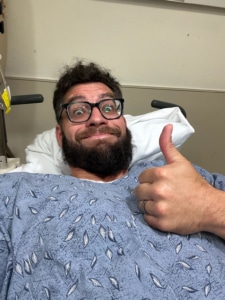
An outpatient appointment with the nephrologist I consulted with in the hospital was ordered. I went, with a hope that the high and prolonged fever just gave a shock to my system, and a week of good health would make the blood “go away.” Wrong. Another urinalysis with the same result.
“So, what’s the plan?” I asked. Since I was in such good health otherwise (their words), it was to monitor and come back in a couple of months.
Fast forward a couple of months to mid-April, I was preparing for my rugby team’s division championship, and a right to go onto the Final 16 of the national championship tournament. We hosted our match as the regular season 1-seed, but also as a neutral-field host for a second game; the Division 4 championship. These were both tremendous honors for our club, but as the team president and an active player, this put me under a tremendous amount of stress. Stress to get myself and the team ready to perform on the field, but also essentially to serve as an event planner, with an after-match party hosting more than 200 people.
During this period, I noticed a spike in my symptoms. This was the turning point; I called the doctors and said, “monitoring doesn’t work for me anymore.” A biopsy was scheduled shortly thereafter.
The results came back as IgA nephropathy, just as my nephrologist hypothesized when we had talked pre-biopsy. For those, like me back in April, reading the words “IgA nephropathy” for the first time, this happens when a germ-fighting protein called immunoglobulin A (IgA) builds up in the kidneys. This causes a type of inflammation that, over time, can make it harder for the kidneys to filter waste from the blood.
Physically speaking, it was as good of a diagnosis as I could have received; it is the most common and treatable form of CKD. But it comes with a lot of mental fatigue. Not only are the words “chronic,” “kidney,” and “disease” three incredibly scary words when mashed together to describe your own body, but in order to remain “ok” and “healthy” it requires a host of lifestyle changes. In short, I was told to cut back all of the things I like to eat, drink, and do.
The first thing I learned is that animal proteins are tough to process for the kidneys; this meant a switch to a mostly vegetarian diet, and a reduction in dairy. All of the sudden, things I have been putting in my body, under 100% belief that this was a good thing, i.e. a glass of dairy milk, or lean, grilled chicken-based meals, actually had the potential to hurt my kidneys.
The other blow? Yes, the rugby. Literally my favorite thing to do in the world since I first picked up a ball as a skinny 17-year-old, I have been advised I need to cut down, or even cut out, my on-field contributions. It’s not that rugby = kidney damage, but overexertion of any kind leads to dehydration, which is then in turn, bad for the kidneys.
I went into that championship game not knowing what was going on with my body, but knowing it could likely be my last, or at least the last playing as the 80-minute, sideline to sideline, maximum effort player I was known to be. I went out with a vintage, 15-tackle performance in the kind of hard-fought loss you can take on the chin with pride for your team and yourself.
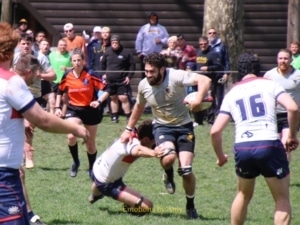
For someone who built a 19-year career on “overexertion” — leading from the front as a physical player in a physical game, being relied upon to almost never need a sub or come off the field — saying goodbye or even taking an age-appropriate role as a reserve player, is something I grapple with almost every day and still am figuring out how to best navigate. This comes with added mental fatigue of a need to find the balance between generally healthy, “good” exercise, without the overexertion that can lead to dehydration.
Whether it was a game, a fitness competition I was determined to “win” over my much-younger teammates, or even six hours of yard work in the July heat and humidity, I always pushed myself to my limits, never left anything for the proverbial swim back. Overexertion had been my calling card. My innate competitive advantage to dig deeper than anyone, regardless of their size, strength, or skill.
As a 37-year-old father of two young kids, I can acknowledge that being told to take a step back from a game that demands so much of me physically, in order to help be as healthy as I can for as long as I can, isn’t necessarily a bad thing; it’s an inevitability. Fortunately, there quickly became an opportunity to step in as a Coach for our nationally-ranked rugby 7s (the shorter, faster, 7 on 7 version of the game you may have seen in the Olympics) program, to help me cope. And there I was the week before Father’s Day, holding a clipboard as our team found its way to another championship game in the first tournament of the summer.
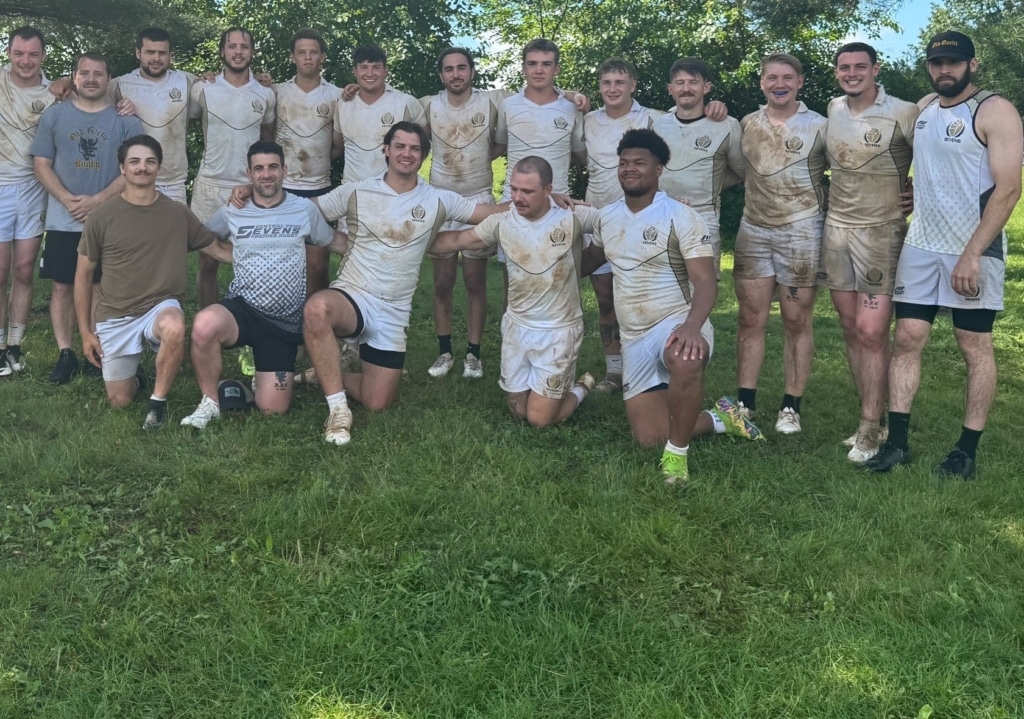
Being a dad to two young kids comes with its own list of concerns and stressors whenever a medical issue pops up. I want to be around for them and my wife well into their adulthood, and don’t want an early demise to be the trigger for their own lifetime of trauma.
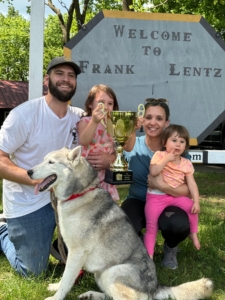
The ages I am staring at around the corner for myself and daughters align with some of my greater family’s biggest losses. While I can recognize the reality; that this was caught early, and in a mild stage, and any of the more critical treatments like dialysis or kidney transplant are years and years away if ever needed, the mind can still go into the darkest corners, especially in times of stress and uncertainty.
Fortunately, a pre-Father’s Day check-in (yes, this is hot off the presses) led the doctor to run a simulation that showed a less than 1% chance of going into kidney failure. We at C-Path know that the data doesn’t lie. This helped push those nasty thoughts further to the background.
As I have been managing all of this, the physical and the mental, I feel incredibly fortunate to work with this talented team, (and no, this isn’t the part where I ask for a raise) at an organization that has created tools to help accelerate the development of treatments for CKD. It was in fact, one of our Directors, Mike Minchik, who encouraged me to go to the hospital, when I messaged him on Teams that I was throwing in the towel and taking off work instead of “powering through” the fever for another day.
We have an in-house kidney disease expert, Dr. Sorin Fedeles, Executive Director of our Polycystic Kidney Disease Consortium, in addition to our multi-degreed CEO Klaus Romero to bounce thoughts off of. Yes, even when I don’t like the answers of less milk, steak, and rugby. Our immediate communications and operations team members that I work with daily have been incredibly supportive as well, a great supplement to my personal network of friends and family.
In short, I felt trained to take on this challenge from my experiences at C-Path and the many brave patient advocates I have spoken with. I have been proactive in trying to learn as much about my new normal as possible. Asking questions of the doctors and coming in with written-down inquiries ahead of time, as there always seems to be one or two I’ll forget if I don’t. I have also attended conferences as I prepare to be more active in the CKD community, and joined one of our community engagement committees.
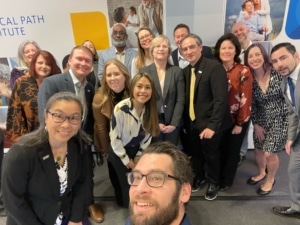
On the treatment end, I recently began taking blood pressure medications in the form of ACE Inhibitors, as the relationship between the kidneys and the heart is very close. Physically speaking, I also feel good. I experienced weight loss of about 15 pounds pretty quickly post-diagnosis, though that seems to have stabilized and likely is attributed to the diet and lifestyle changes.
At this point, if you are still reading, I would like to congratulate you for making it through 1,700 words of a diagnostic Odyssey that could have easily been another 2,000 words. I also want to thank you, because you have now read the entirety of my first patient advocacy piece and efforts.
As it is Men’s Health Awareness Month, ahead of Father’s Day weekend, I would feel remis by not telling my fellow “tough guys” to take care of themselves. Schedule that physical you’ve been avoiding. Be open to talking to someone if you’re going through a difficult stretch. Check out your company’s Employee Assistance Program resources; they may be more beneficial than you think.
These next few months represent the next steps of my journey, measuring the effectiveness of this first treatment option. In the meantime, I will be looking for ways to learn about CKD, stay connected, and share the story of how I got to my new normal.
Until then, I’ll see you at our Global Impact Conference. And sorry if I block your view.
Want to support C-Path’s most vital mission, to advance better treatments for people worldwide?
